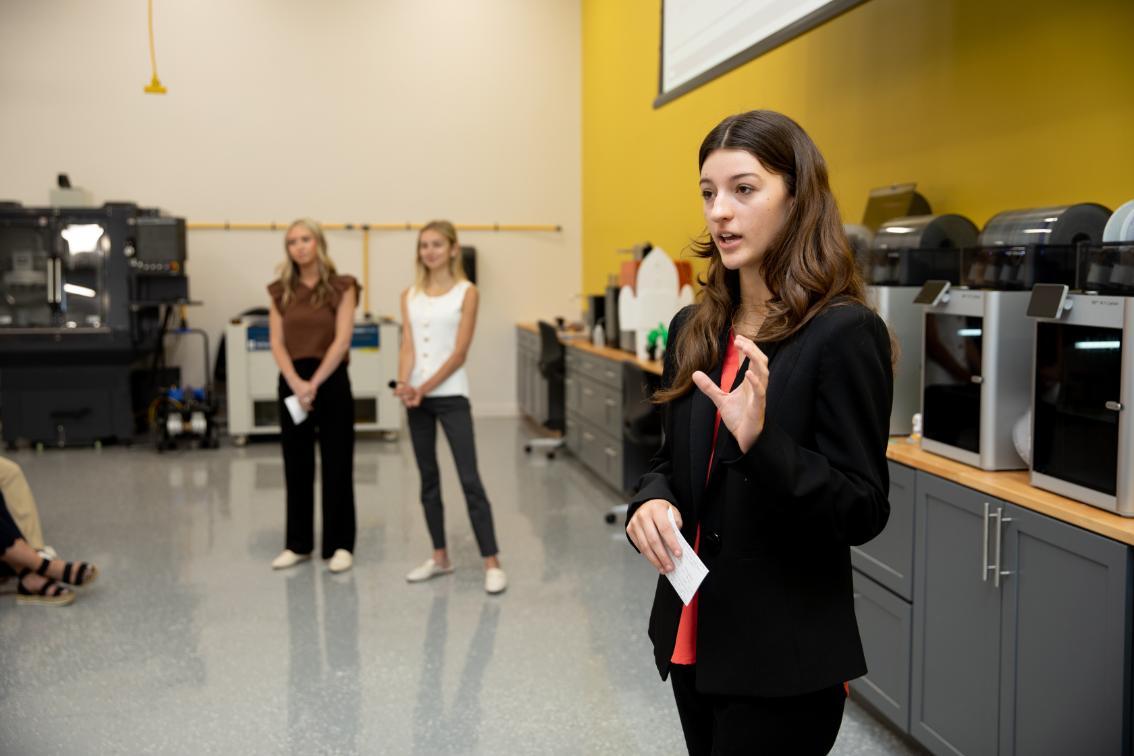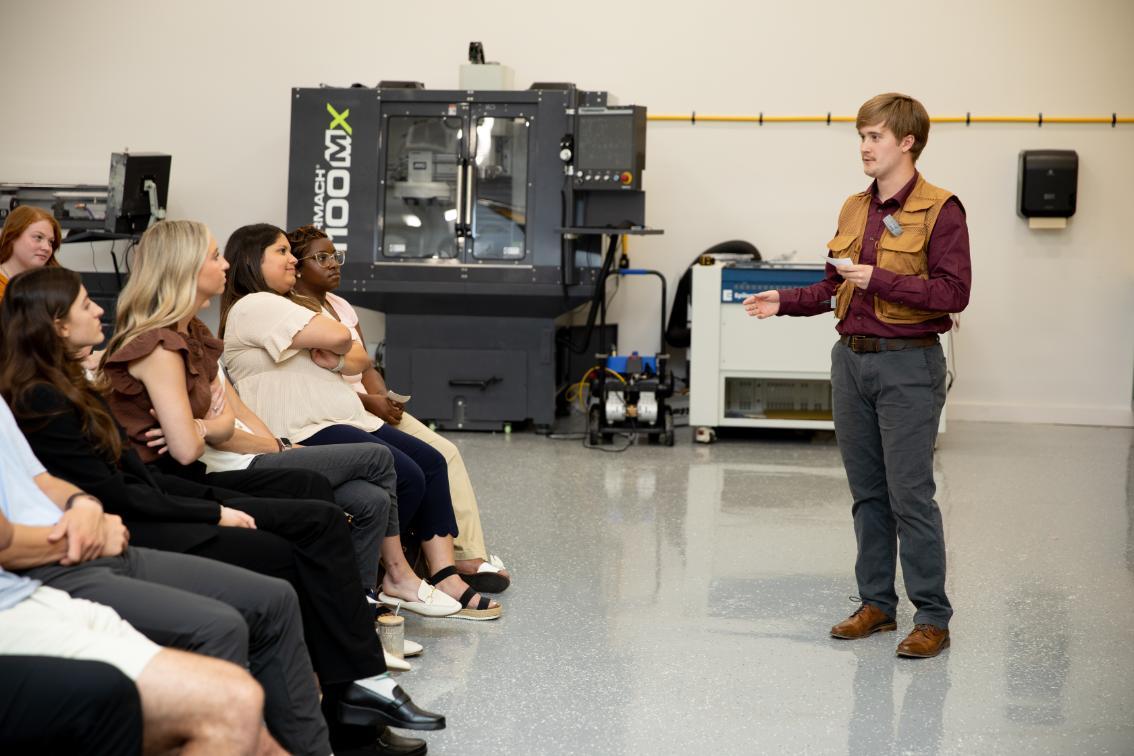

It wasn’t a television show, but Longwood’s recent “Shark Tank”-style competition for aspiring student entrepreneurs definitely had the bite of reality.
With the precious few minutes of their allotted “pitch” time quickly ticking by and $1,000 in cash prizes on the line, student teams presented their business ideas in the event put on by the College of Business and Economics (CBE), which Dean Khawaja Mamun said was “designed to empower the next generation of business leaders to transform their innovative ideas into market-ready ventures.”
Who would the judges choose to take home some cash to further develop their ideas?
Would it be the team whose brainchild was an aesthetically pleasing yet affordable snowboard/ski rack? Or the team that created a fidget-calming, programmable cube? Maybe the team behind the customizable cooling towel?
All of the competitors had spent a good part of the spring semester developing product ideas and coming up with a business plan as part of their Entrepreneurship class taught by Dr. Qifan Chen, assistant professor of management. The class is part of Longwood’s Entrepreneurship and Innovation minor, which is housed in CBE and is open to students in any major at Longwood.

[This competition] allowed students to apply what they've learned in the classroom about entrepreneurship and transform theoretical knowledge into practical experience.
by Dr. Qifan Chen, assistant professor of management Tweet This
“This competition was a great opportunity for students to practice articulating their unique ideas, a valuable skill for their future careers,” said Chen. “It also allowed students to apply what they've learned in the classroom about entrepreneurship and transform theoretical knowledge into practical experience.”
Sam Anderson, founder/CEO of Enso Media Firm and one of three judges for the competition, agreed.
“Programs like this are so instrumental for the development of entrepreneurial skills,” said Anderson, who describes himself as a “serial entrepreneur.” “A big part of being a great entrepreneur is sales and presentation. Being able to practice these skills in front of a group of individuals is something I wish I had been exposed to at a much earlier age.”
Anderson, who studied business at Longwood for three years, was joined on the judges panel by Longwood faculty member Jacob Dolence and Chris Davis ’09, a financial advisor with Merrill in Richmond, Virginia. Davis, who majored in communication studies at Longwood, and Anderson are members of the CBE Advisory Board, which put up the money for the prizes.
“I was thrilled to see how teams put together an actual prototype of their winning designs to hand to us just like the real ‘Shark Tank,’” said Davis.
And now for the winners, all of whom are business majors.
Taking third-place honors and $200 was the FitBrew team—Keelin Fowley ’26, marketing concentration, and Emma Coleman ’26 and Kristina Triebsch ’26, both management/marketing concentration. Their product was a Keurig-compatible coffee pod spiked with 20 grams of protein—giving the time-pressed person breakfast and coffee in the same cup.
Second place and $300 went to the team that developed a trash-sorting device that takes the reluctance out of recycling. QuickSort is an AI-powered trash can equipped with sensors and cameras that automatically sorts waste and recyclables. Smiling all the way to the bank were Olivia Sisk ’25, management/marketing concentration; Katherine Browne ’26, management concentration; and Karli Jacobs ’26, management concentration.
First place and $500 went to Zach Stephens ’26, marketing concentration, a fly fisherman who thought there must be a better way to carry his rod and reel, plus all of his other gear, when he’s hiking up to a remote, high-elevation stream. The light bulb went off, and Cast Cradle was born. It’s is a two-part device that attaches to a fishing vest and securely holds the rod and reel, freeing the fisherman’s hands.
Stephens is one of the students who has taken advantage of the equipment and expertise at the newly opened SEED Innovation Hub, which is where the “Shark Tank” competition took place. SEED is a partnership of education and business that helps ideas get off the ground.
Davis thinks the combination of resources, academic courses and hands-on experience may help entrepreneurial Longwood students hit a much bigger jackpot in the not-too-distant future.
“In discovering the tools now available to students in the SEED Innovation Hub, and what [SEED director] Evan Jones has shown the kids the ability to design—with real 3D printer designs, and woodworking and welding capabilities—I fully expect some student group to approach the real ‘Shark Tank’ in the future with a business idea,” he said.
